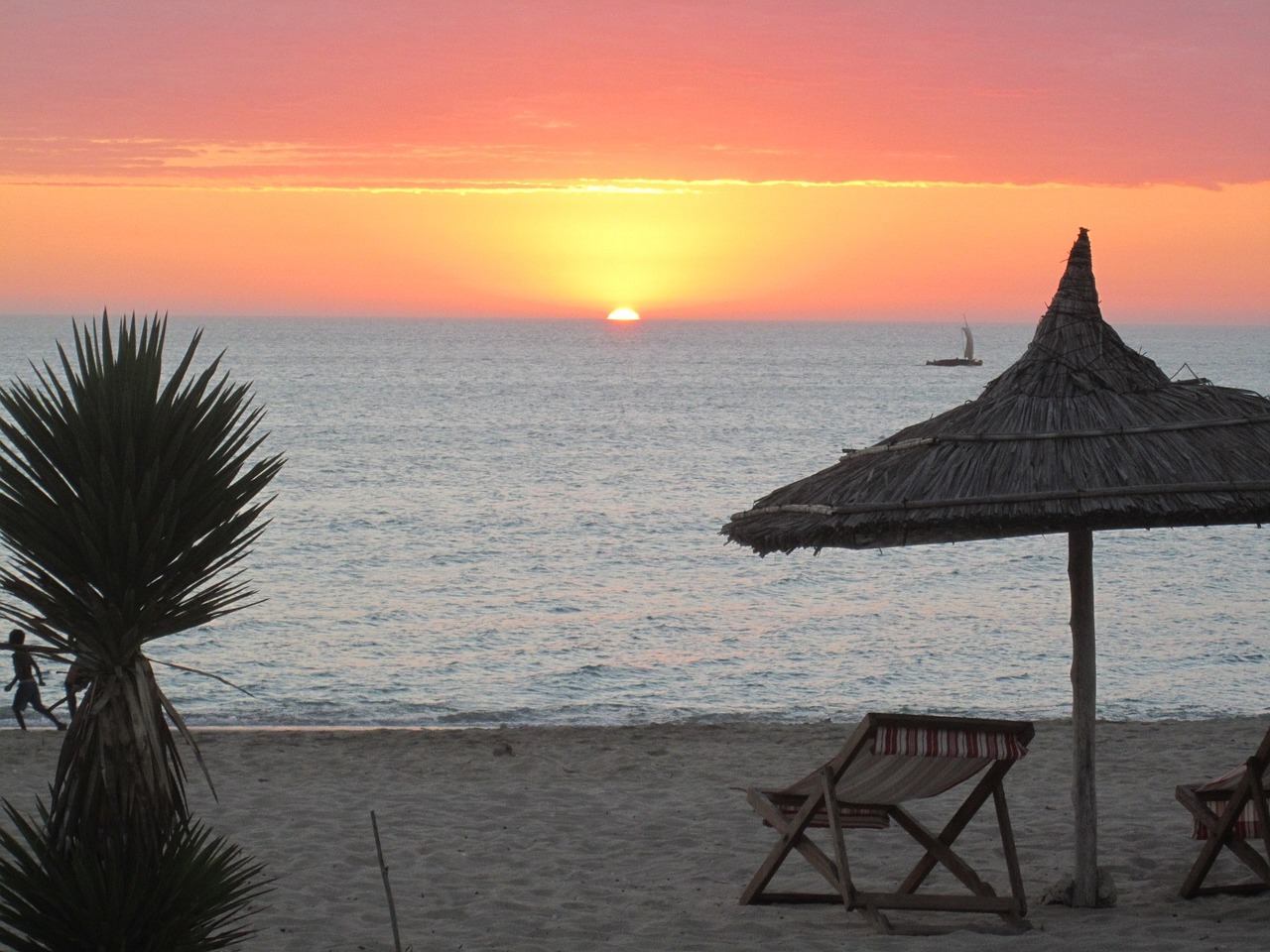Madagascar Video
Managing Finances and Payments while Working in Madagascar
Madagascar is a vibrant and culturally rich country located off the southeastern coast of Africa. Known for its unique wildlife, stunning landscapes, and diverse cultures, Madagascar offers a range of opportunities for individuals looking to work and live in this beautiful country. However, managing finances and payments can be a challenge, especially for expatriates and foreign workers. In this article, we will explore various aspects of managing finances and payments while working in Madagascar, providing you with valuable information and tips to navigate the financial landscape of this fascinating country.
Banking and Currency
Madagascar’s official currency is the Malagasy Ariary (MGA). It is essential to familiarize yourself with the local currency and understand the exchange rates before arriving in Madagascar. The currency can be exchanged at banks, authorized foreign exchange bureaus, or hotels. It is advisable to carry a mix of cash and cards for convenience and emergencies.
- Local Banks: Several local banks operate in Madagascar, including Bank of Africa, BNI Madagascar, and BFV-Société Générale. These banks offer a range of services such as current and savings accounts, foreign currency exchange, and international money transfers.
- ATMs: ATMs are widely available in major cities and tourist areas, allowing you to withdraw cash using international debit or credit cards. However, it is recommended to inform your bank about your travel plans to ensure uninterrupted access to your funds.
- Online Banking: Some banks in Madagascar provide online banking services, allowing you to manage your finances, make payments, and transfer funds conveniently. Ensure you have a reliable internet connection and take necessary precautions to protect your online banking credentials.
Opening a Bank Account
If you plan to work in Madagascar for an extended period, opening a bank account can be beneficial. It provides a secure way to manage your income, make payments, and access various banking services. To open a bank account in Madagascar, follow these general steps:
- Choose a Bank: Research the different banks in Madagascar and select one that suits your needs and preferences.
- Required Documents: Visit the chosen bank’s branch with the necessary documents, including your passport, visa, proof of address, and work contract.
- Application Process: Complete the account opening application form provided by the bank. You may need to provide additional information, such as your source of income and expected monthly deposits.
- Initial Deposit: Some banks require an initial deposit to activate your account. The amount varies depending on the bank and the type of account you choose.
- Account Activation: Once your application is processed and approved, the bank will provide you with the necessary account details and documentation.
Managing Income and Expenses
Effectively managing your income and expenses is crucial to maintain financial stability while working in Madagascar. Here are some tips to help you in this regard:
- Create a Budget: Develop a monthly budget to track your income and expenses. Consider your fixed costs, such as rent, utilities, and transportation, as well as variable expenses like groceries, entertainment, and travel.
- Save for Emergencies: Set aside a portion of your income as an emergency fund to cover unexpected expenses or unforeseen circumstances.
- Use Local Currency: While it may be tempting to use foreign currency, it is advisable to use the local currency for day-to-day expenses to avoid unfavorable exchange rates and additional charges.
- Avoid Informal Money Changers: It is recommended to exchange currency at authorized banks or foreign exchange bureaus to ensure you receive a fair exchange rate and genuine currency.
- Track Expenses: Keep track of your expenses by maintaining a record of receipts and transactions. This will help you identify areas where you can cut costs or make adjustments in your spending habits.
Payment Methods
In Madagascar, various payment methods are available to facilitate transactions. Here are the commonly used payment methods:
- Cash: Cash is widely accepted in Madagascar, especially for small transactions and in rural areas where electronic payment options may be limited.
- Debit and Credit Cards: Major credit and debit cards, such as Visa and Mastercard, are accepted in larger establishments, hotels, and restaurants in urban areas. However, it is advisable to carry cash as a backup, as card acceptance may be limited.
- Mobile Money: Mobile money services, such as M-Pesa, are popular in Madagascar. These services allow you to transfer money, pay bills, and make purchases using your mobile phone.
- Bank Transfers: If you need to make larger payments or transfer funds, bank transfers are a secure option. Ensure you have the necessary bank account details of the recipient.
Taxes and Financial Regulations
As a foreign worker in Madagascar, it is important to understand the tax obligations and financial regulations in the country. Here are some key points to consider:
- Income Tax: You may be subject to income tax in Madagascar, depending on your residency status and the duration of your stay. Familiarize yourself with the tax laws and consult a tax professional if necessary.
- Social Security Contributions: If you are employed, both you and your employer may be required to contribute to the National Social Security Fund (CNAPS) in Madagascar.
- Financial Regulations: Comply with the financial regulations and reporting requirements set by the Central Bank of Madagascar. Ensure you keep proper records of your financial transactions and consult a professional for guidance if needed.
Madagascar Image 1:

Managing Finances and Payments while Working in Madagascar – Continued
Housing and Rental Costs
Finding suitable accommodation is an important aspect of managing finances while working in Madagascar. Here are some factors to consider:
- Rental Costs: The rental costs in Madagascar vary depending on the location, type of property, and amenities. It is advisable to research the rental market and compare prices before making a decision.
- Lease Agreements: When renting a property, ensure you have a written lease agreement that clearly outlines the terms, duration, and conditions of the tenancy.
- Security Deposit: Landlords usually require a security deposit, equivalent to one or two months’ rent, as a precaution against damages or unpaid rent. Ensure you understand the refund policy and conditions for the security deposit.
- Utilities: In addition to rent, consider the cost of utilities such as electricity, water, and internet when budgeting for accommodation.
- Shared Accommodation: Sharing accommodation with other expatriates or locals can help reduce rental costs. Consider joining expat communities or online forums to find potential roommates.
Transportation and Commuting
Getting around Madagascar requires a reliable transportation plan. Here are some transportation options to consider:
- Taxis: Taxis are a common mode of transportation in Madagascar, especially in urban areas. It is advisable to negotiate the fare before starting the journey or use reputable taxi services.
- Public Buses: Public buses are an affordable option for commuting within cities and between towns. However, they can be crowded, and schedules may be irregular.
- Car Rental: Renting a car can provide flexibility and convenience, especially if you plan to explore the country extensively. Ensure you have a valid international driving permit and familiarize yourself with the local traffic rules.
- Ridesharing: Ridesharing services like Uber and Bolt are available in some cities in Madagascar. They offer a convenient and reliable alternative to traditional taxis.
Healthcare and Insurance
Maintaining good health and having appropriate insurance coverage is essential while working in Madagascar. Consider the following:
- Healthcare Facilities: Madagascar has both public and private healthcare facilities. Private hospitals and clinics generally offer higher standards of care, but they can be more expensive. Ensure you have access to medical facilities and services that meet your needs.
- Health Insurance: Obtain comprehensive health insurance that covers medical expenses, emergency evacuation, and repatriation. Research and compare insurance providers to find the most suitable coverage for your needs.
- Vaccinations: Consult a healthcare professional or visit a travel clinic to receive the necessary vaccinations and medications before traveling to Madagascar. This includes vaccinations for diseases such as yellow fever, typhoid, and hepatitis.
Conclusion
Managing finances and payments while working in Madagascar requires careful planning and a good understanding of the local financial landscape. By familiarizing yourself with the banking system, managing income and expenses, and utilizing the available payment methods, you can navigate the financial aspects of living and working in Madagascar with ease. Remember to comply with tax obligations, understand rental costs, and ensure you have appropriate insurance coverage for a smooth and financially secure experience.
Madagascar Image 2:

References:
- centralbank.mg
- bnimadagascar.com
- bankofafrica.mg
- societegenerale.mg
- lonelyplanet.com/madagascar
- worldbank.org/madagascar
- who.int/madagascar
Madagascar Image 3:



